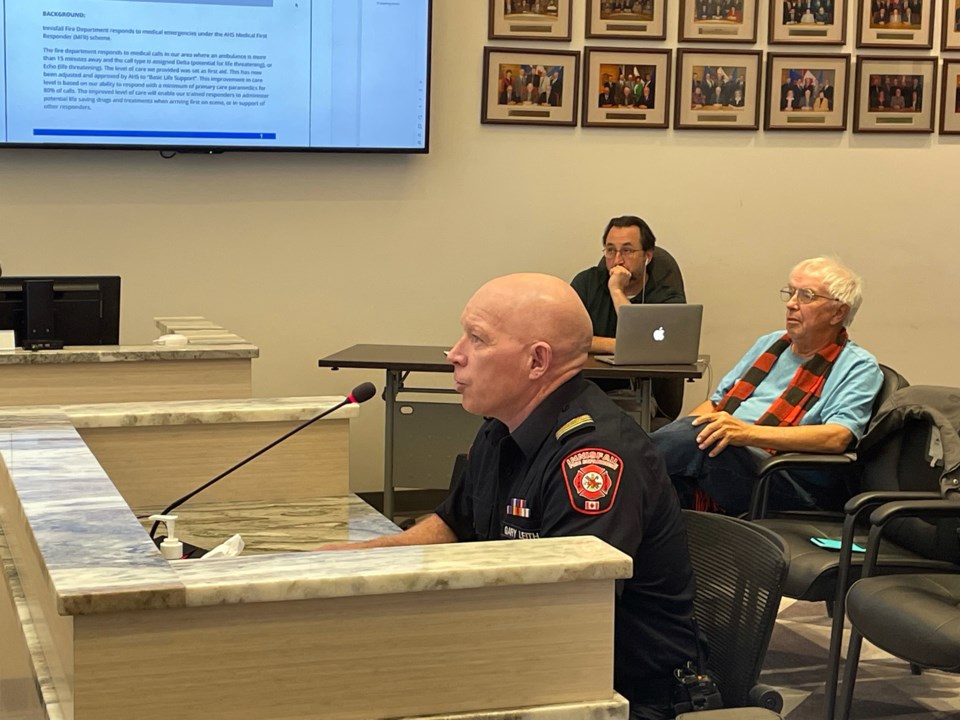INNISFAIL – Emergency service from local firefighters during life threatening calls is increasing to an unprecedented level of care that could save many more lives in the future.
Gary Leith, the Town of Innisfail's fire chief, told town council at its Agenda & Priorities meeting on Nov. 20 that Alberta Health Services (AHS) has adjusted and approved a change to the Innisfail Fire Department’s (IFD) level of care on medical emergencies from first aid to basic life support.
Council was told the improvement to the care level is based on the IFD’s ability to respond with a minimum of primary care paramedics for 80 per cent of calls.
Leith added the move to the higher level of emergency response was a first for the local fire department.
He told council the fire department responds to medical calls in the Innisfail area where an ambulance is more than 15 minutes away.
The fire chief said the call type is assigned Delta (potential for life-threatening), or Echo (life-threatening), with the mandated level of care set as first aid.
“When we're responding with just the ability to provide first aid it's just basically airway administration and checking for breathing and checking for pulse and all those things to make the person comfortable,” said Leith of his firefighter’s longstanding first aid level of care before the arrival of ambulance paramedics.
“The improved level of care will enable our trained responders to administer potential life-saving drugs and treatments when arriving first on scene, or in support of other responders.”
Council was told additional supplies and medications are being provided to the IFD by AHS. Leith said a grant application for $30,000 has been submitted for the acquisition of a cardiac monitor (Life Pack 15).
He said the improved level of emergency care will start as soon as AHS is able to stock the IFD with new supplies.
“We're literally at the mercy of Alberta Health Services. They are supplying them through Pharmasave Jackson's,” said Leith. “When those supplies come in we can stock the units and we’ll be responding to that level of care.”
Council was also told that while the level of care is being improved due to the IFD’s current capacity of “highly educated professional firefighters” there is no obligation to maintain it.
“If we respond to a medical call and we don't have a primary care paramedic or qualified person we drop back to the level of care of first aid,” said Leith.
He added the IFD currently has four primary care paramedics and one advanced care paramedic, which helped give his department the boost it needed to provide an increased level of care.
“Certainly, on some of the calls that we attend, where we're potentially waiting 15 to 20 minutes, It certainly could be a lifesaver.”
Council approved a motion to accept Leith’s report and presentation as information.



